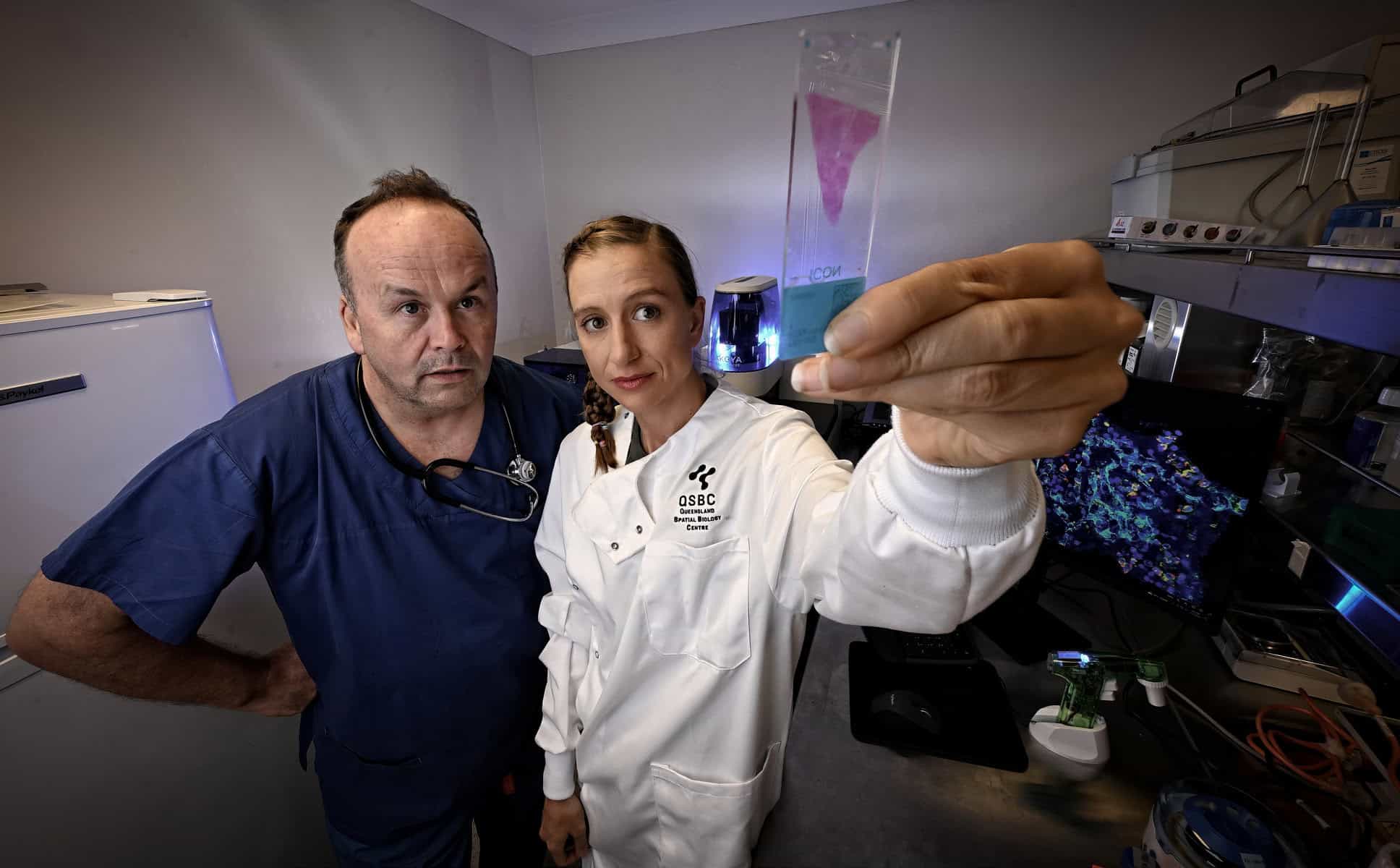Coeliac Disease and Immune Health
Gluten Threshold Study
This study aims to determine if there is a minimum threshold or a ‘safe dose’ for the amount of gluten ingested by patients with coeliac disease.
Research Objectives
Status
Recruitment
Estimated completion
Patient Group
Total Participants
Study location
Study type
Lead investigator
- Dr James Daveson
Clinical trial coordinator
- Emma Brownrigg
Technical title
A Double-Blind, Placebo-Controlled, Adaptive Dose-Response Study To Assess the Acute Effects of Gluten in Adults with Treated Coeliac Disease.
About this research project
Patients with coeliac disease can experience acute food poisoning symptoms related to an immune activation phenomenon within two hours after ingesting as little as 1 gram of gluten.
Currently in Australia and New Zealand, the uncertainty over the safe dose of gluten has led to a ‘no detectable’ gluten standard for food labelled ‘gluten free’. However, throughout the rest of the world the ‘gluten free’ standard is 20 parts per million (which is higher than ‘no detectable’).
Critically, many individuals will not be instantly symptomatic however still have an acute immune response to ingestion of very low amount of gluten. We do not know the minimum dose of gluten that activates an immune response, injures the gut and causes symptoms. This has in turn taken a toll on food safety standards in Australia and worldwide.
The Coeliac Disease and Immune Health Research Program (CDIHRP) at Wesley Research Institute is addressing this knowledge gap through the Gluten Threshold Study. This study will compare small doses of gluten; Each participant is allocated either a dose of gluten or a placebo (which contains no gluten at all) through a process known as randomisation. The dose of gluten/placebo will be administered in a “gluten challenge”, which means that participants will ingest the gluten/placebo and then be observed for side effects.
This study aims to determine if there is a minimum threshold or a ‘safe dose’ for the amount of gluten ingested by coeliac disease patients. Other outcomes of this study will include:
- Non-invasive diagnostic test could be developed for ‘at-risk’ relatives.
- Improved symptom changes for patients.
- Identify biomarkers for coeliac disease onset
Potential Outcomes
The impact of this study will which are aimed at reducing gluten induced intestinal injury, by understanding the amount of gluten that will induce an immune response. Our results so far have conclusively shown a requirement for updating FDA and EPA regulations around “GF” labelling and further results will enhance and strengthen programs being developed for the advancement of greater food security for the coeliac community.
Recruitment
This clinical trial has been split into 4 cohorts:
Cohort 1: 6 patients of high-dose gluten challenge, was completed in November 2022
Cohort 2: 15 patients administered with decreasing amounts of gluten as per the Fibonacci scaling, was completed in May 2023.
Cohort 3: 15 patients administered with decreasing amounts of gluten as per the Fibonacci scaling lower than that of Cohort 2, was completed in November 2023.
Cohort 4: Recruitment for a total of 15 participants is currently open for this cohort and we will be administering doses lower than the minimum established by the FDA and EPA. We expect to begin dosing new participants in February 2024 with completion of study in May 2024.
ANZSRC Socio-Economic Objectives (SEO)*
200101 Diagnosis of human diseases and conditions
200202 Evaluation of health outcomes
280103 Expanding knowledge in the biomedical and clinical sciences
ANZSRC Field of Research (FoR)*
320209 Gastroenterology and hepatology
320403 Autoimmunity
420309 Health management
Latest News

Jillian’s Story

Breaking Ground in Paediatric Rare Disease Research
